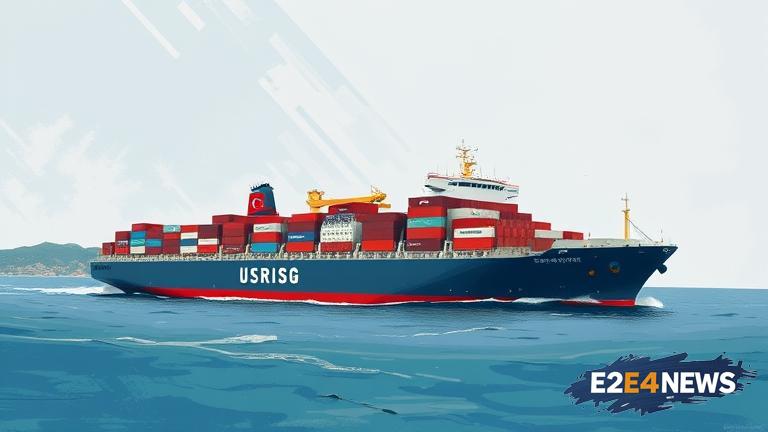In a surprise move, Turkey has announced an immediate ban on all shipping associated with Israel, according to a confirmation by ZIM, a major Israeli shipping company. The ban, which was reportedly imposed due to diplomatic tensions between the two countries, has sent shockwaves throughout the maritime industry. The move is expected to have significant implications for trade between Israel and Turkey, as well as for the global shipping sector. ZIM has stated that it is working to minimize the impact of the ban on its operations and customers. The company has also expressed its commitment to finding alternative solutions to ensure the continued flow of goods. The ban is seen as a major escalation of the diplomatic tensions between Israel and Turkey, which have been strained in recent years. The two countries have had a complex and often tumultuous relationship, with periods of cooperation and conflict. The current ban is believed to be related to Turkey’s objections to Israel’s policies in the Middle East, particularly with regards to the Palestinian issue. The Turkish government has been a vocal critic of Israel’s actions, and has called for a two-state solution to the Israeli-Palestinian conflict. The ban on Israeli-linked shipping is seen as a significant step in Turkey’s efforts to pressure Israel to change its policies. The move is also expected to have economic implications, as trade between Israel and Turkey is significant. Israel is a major exporter of goods such as agricultural products, chemicals, and technology, while Turkey is a key market for Israeli goods. The ban is likely to disrupt the supply chain and cause delays and increased costs for importers and exporters. The international community is watching the situation closely, with many countries expressing concern about the potential impact on regional stability. The United States, in particular, has been working to mediate the conflict and promote a peaceful resolution. The European Union has also called for calm and restraint, and has urged both sides to engage in dialogue. Despite the challenges, ZIM has stated that it remains committed to its customers and will work to find alternative solutions to ensure the continued flow of goods. The company has a long history of operating in the region and has established a strong network of partners and agents. ZIM has also invested heavily in its fleet and infrastructure, and is well-positioned to adapt to changing market conditions. The ban on Israeli-linked shipping is a significant development in the complex and often volatile world of Middle Eastern politics. As the situation continues to unfold, it remains to be seen how the ban will impact the region and the global shipping sector. One thing is certain, however: the ban will have far-reaching implications for trade, diplomacy, and regional stability. The international community will be watching the situation closely, and will be working to promote a peaceful resolution to the conflict. In the meantime, ZIM and other shipping companies will be working to minimize the impact of the ban and ensure the continued flow of goods. The situation is a reminder of the complex and often unpredictable nature of global politics, and the need for companies and governments to be adaptable and responsive to changing circumstances. As the world watches the situation unfold, one thing is clear: the ban on Israeli-linked shipping is a significant development that will have far-reaching implications for the region and the global shipping sector.
